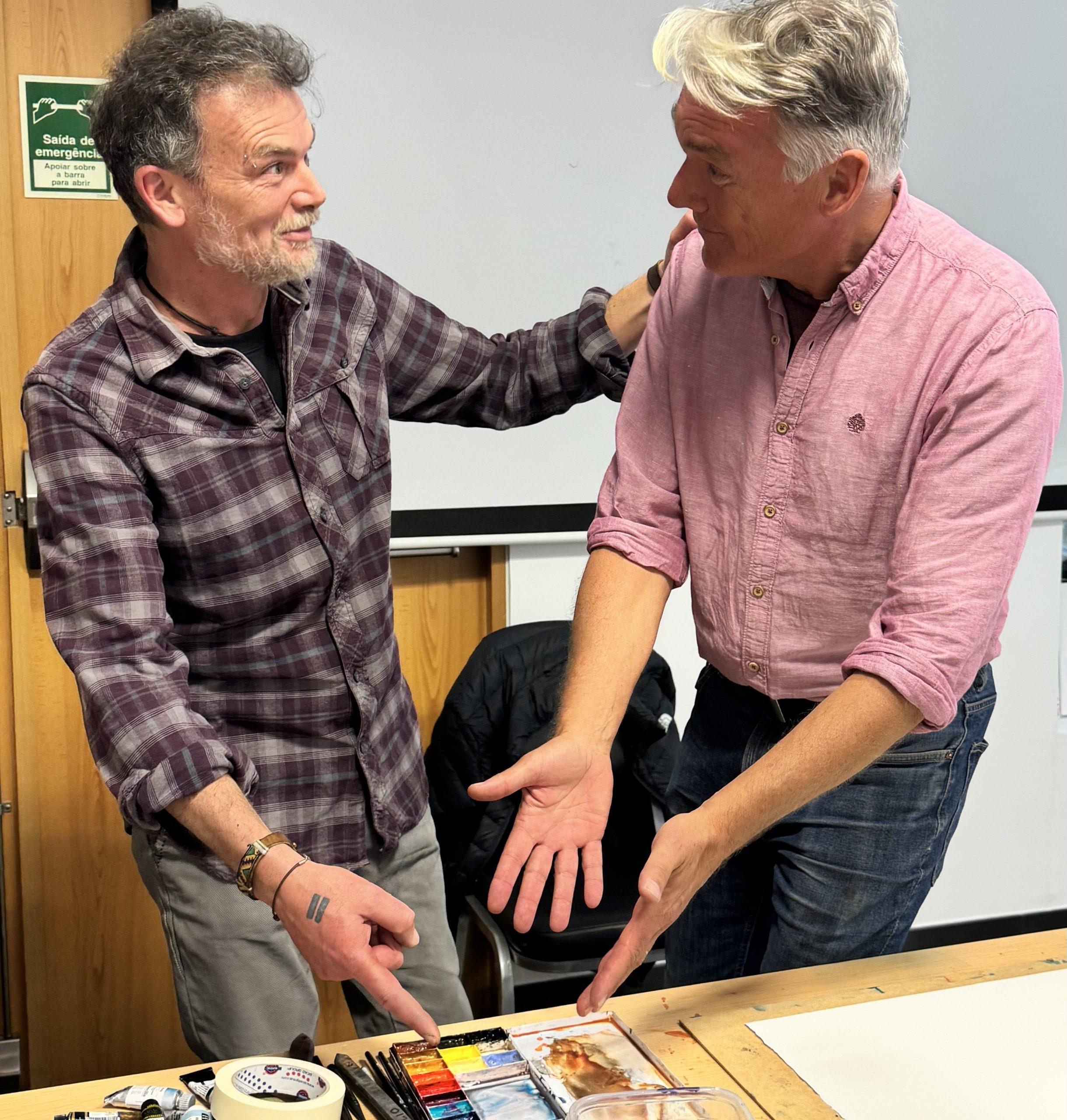Here, I am instructing Roberto Zangarelli on how to use the palette when painting with watercolors :-).
Author: Stefan Gadnell
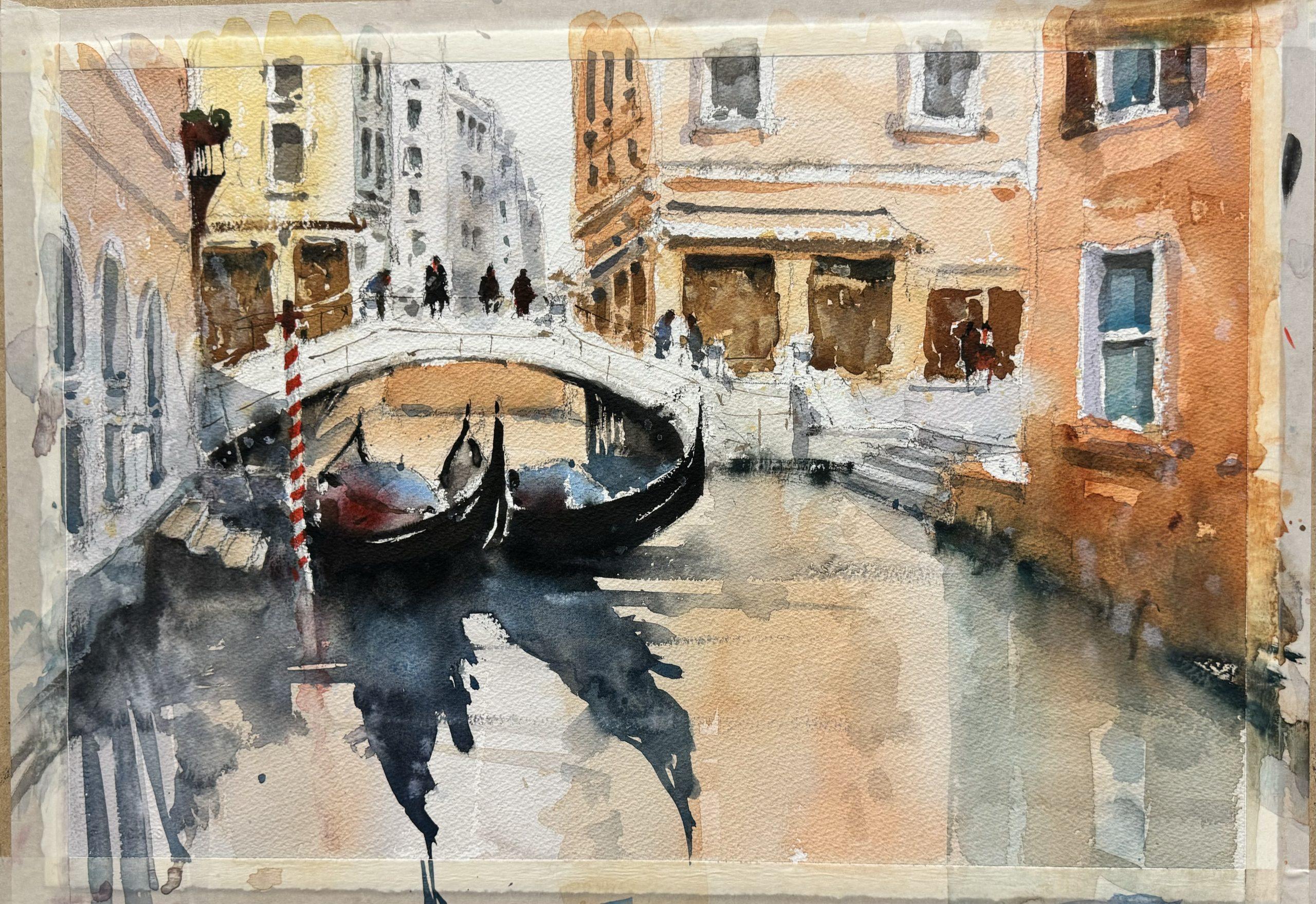
Zangarelli Workshop – day 2
Roberto’s watercolor of boats in Venice. The reference is on the previous page.
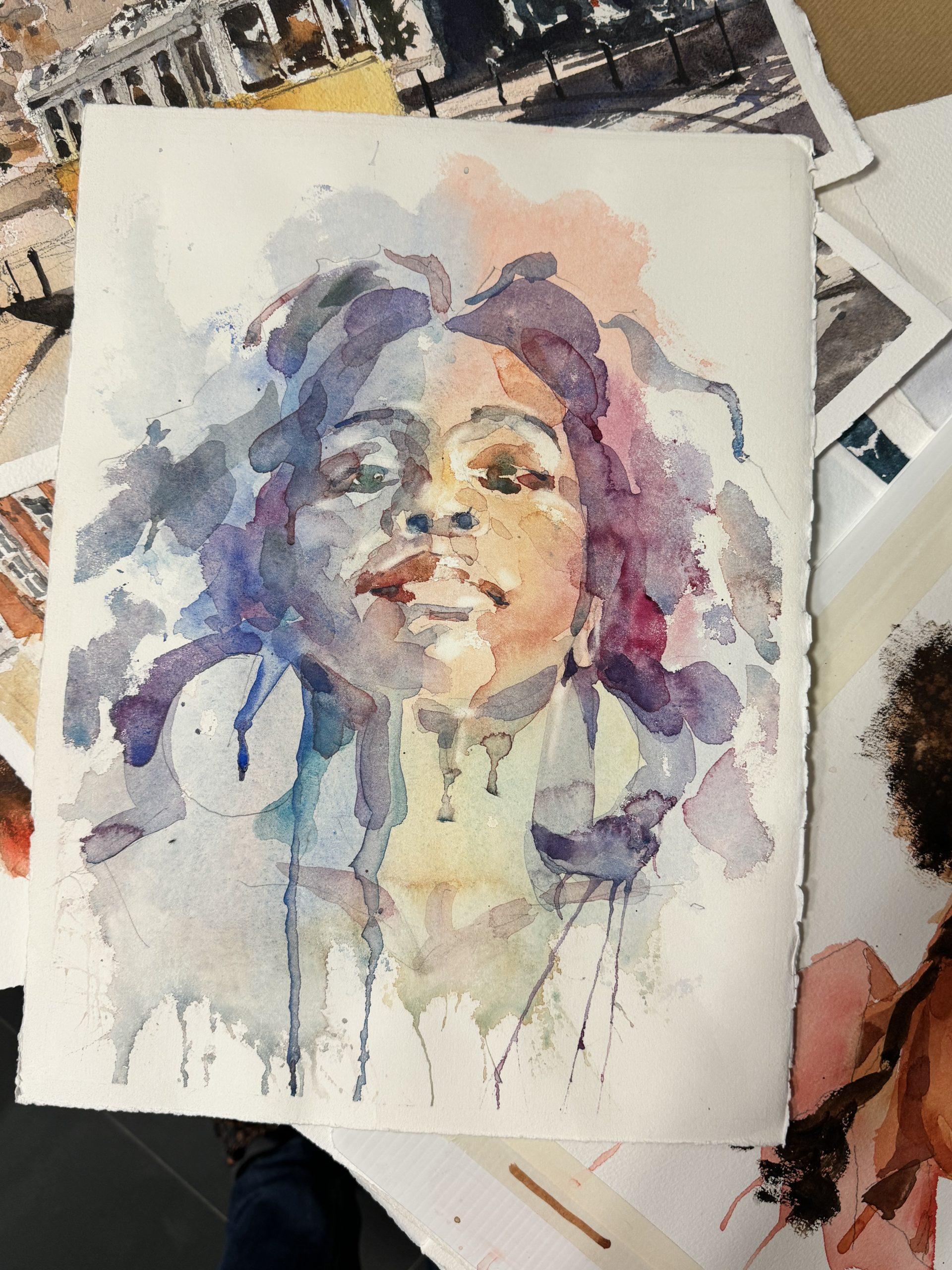
Roberto Zangarelli in Cascais-day 1
In February 2024, we participated in an exciting workshop with Roberto Zangarelli in Cascais, Portugal. Roberto Zangarelli is a distinguished Italian watercolor artist and graphic illustrator from Rome, born in 1970. He has a distinct vision for watercolor painting based on three fundamental principles: atmosphere (representing the painting’s story), magic…
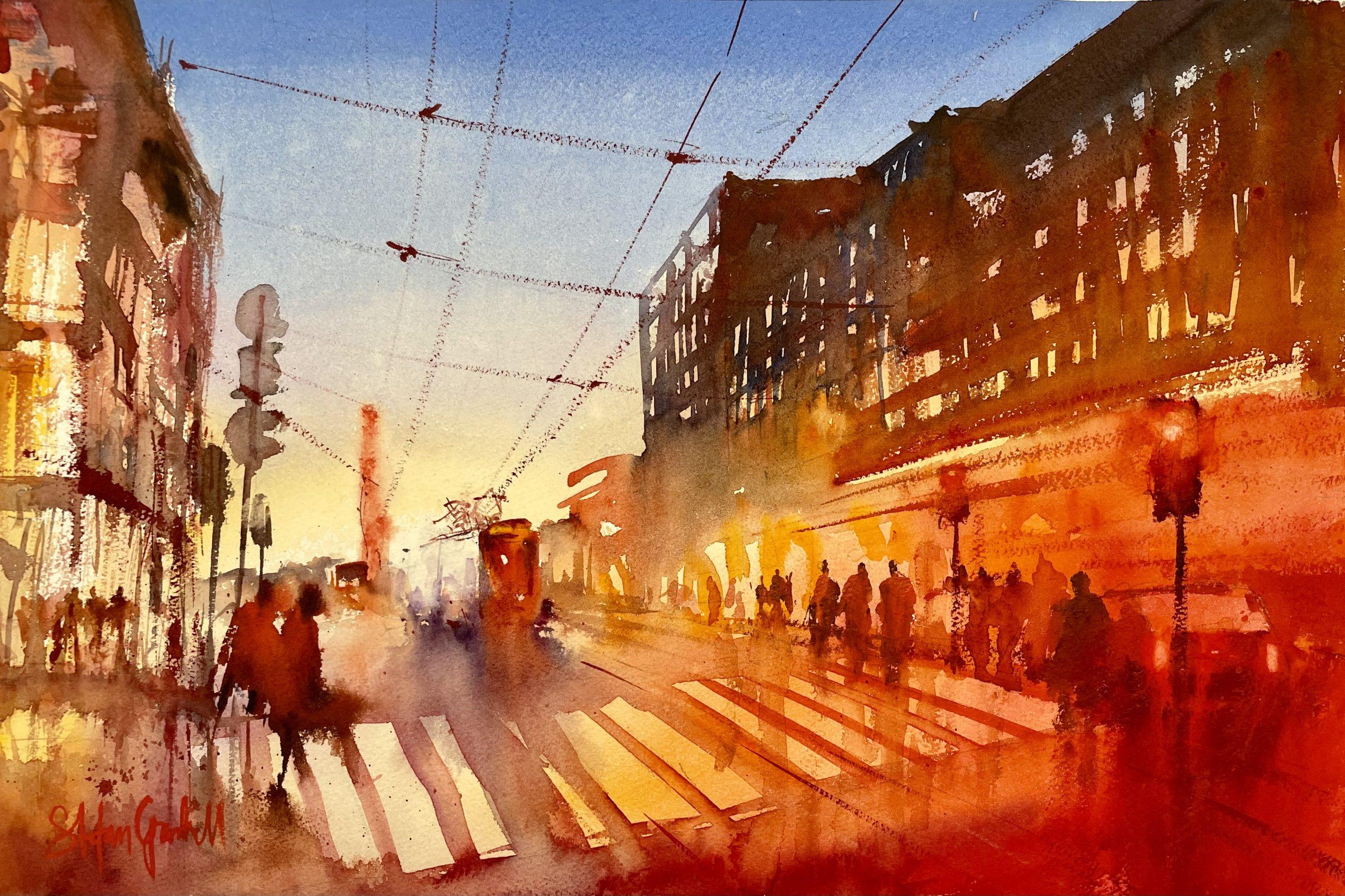
Loose painting
Are you spending hours on a painting, but still unhappy with the result? Many painters, including myself, chase that elusive loose style that looks free and easy. In these four articles, I’ll share my approach to achieving it. First, let’s define loose painting. It’s like a patchwork of shapes, washes,…
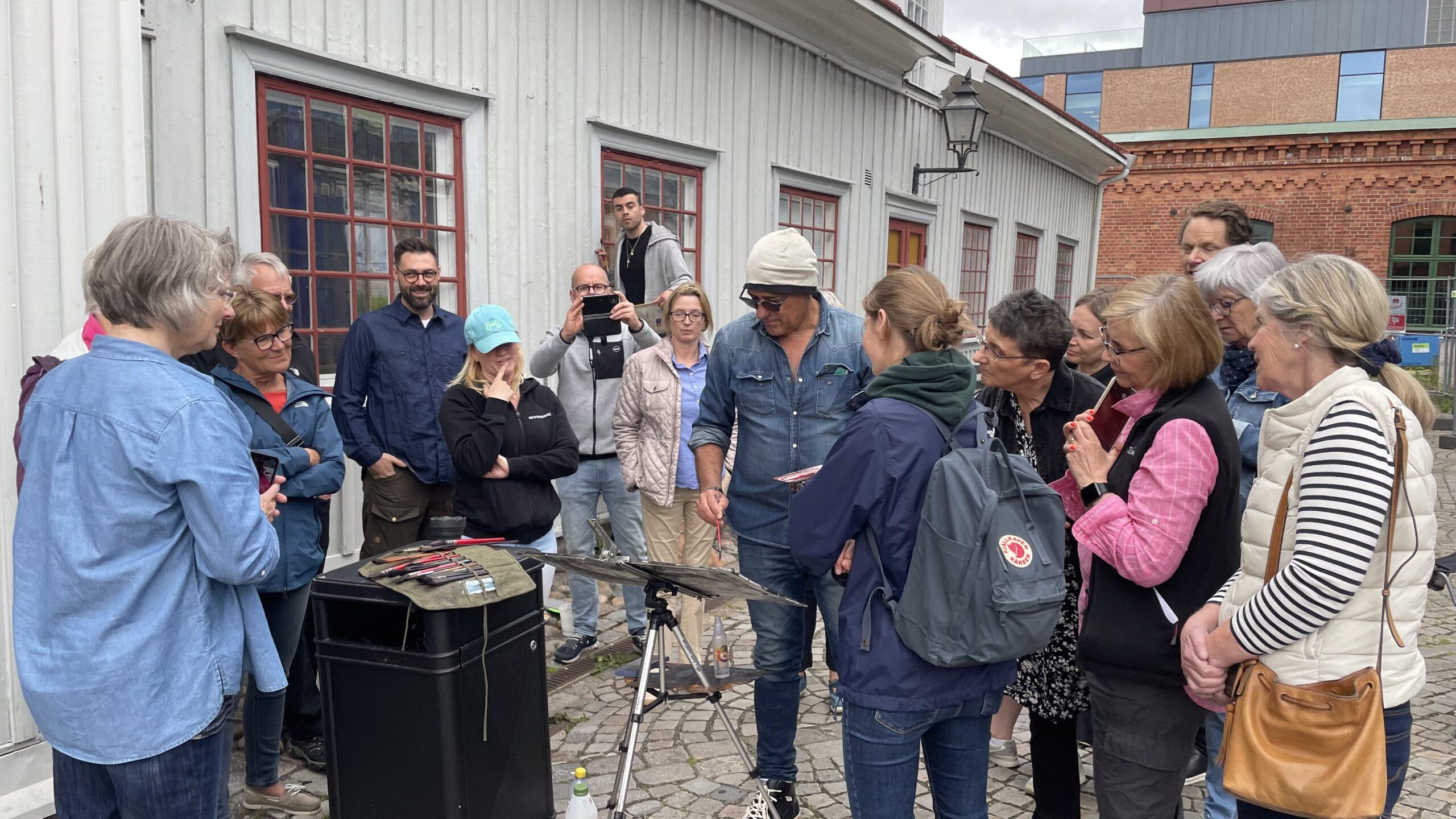
ALVARO CASTAGNET In JÖNKÖPING
This summer we were invited to participate in a workshop in Jönköping with Alvaro Castagnet, fantastic, isn’t it, in Jönköping!! At first we thought it was a joke, but, no, he was going to hold a workshop there for two days. Julie Karlsson had arranged this in Folkuniversitet’s premises. My…
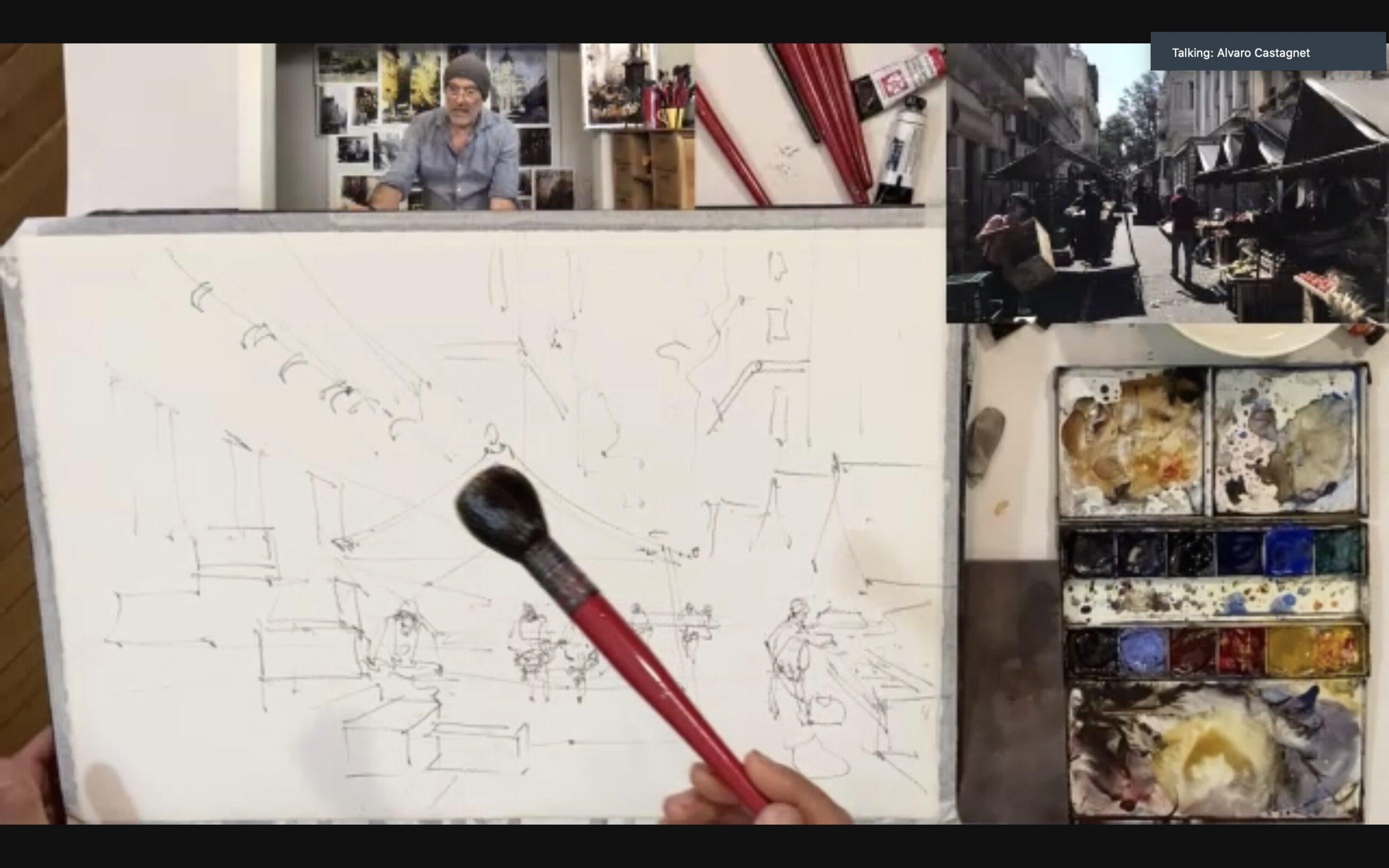
Online Workshop with Alvaro Castagnet
At the beginning of November 2022 I found a notice about an online workshop with Alvaro Castagnet. It cost only $99 and you would get to paint online with Alvaro for four hours. He would start at 5 in the afternoon in Australia which meant starting at nine for me,…
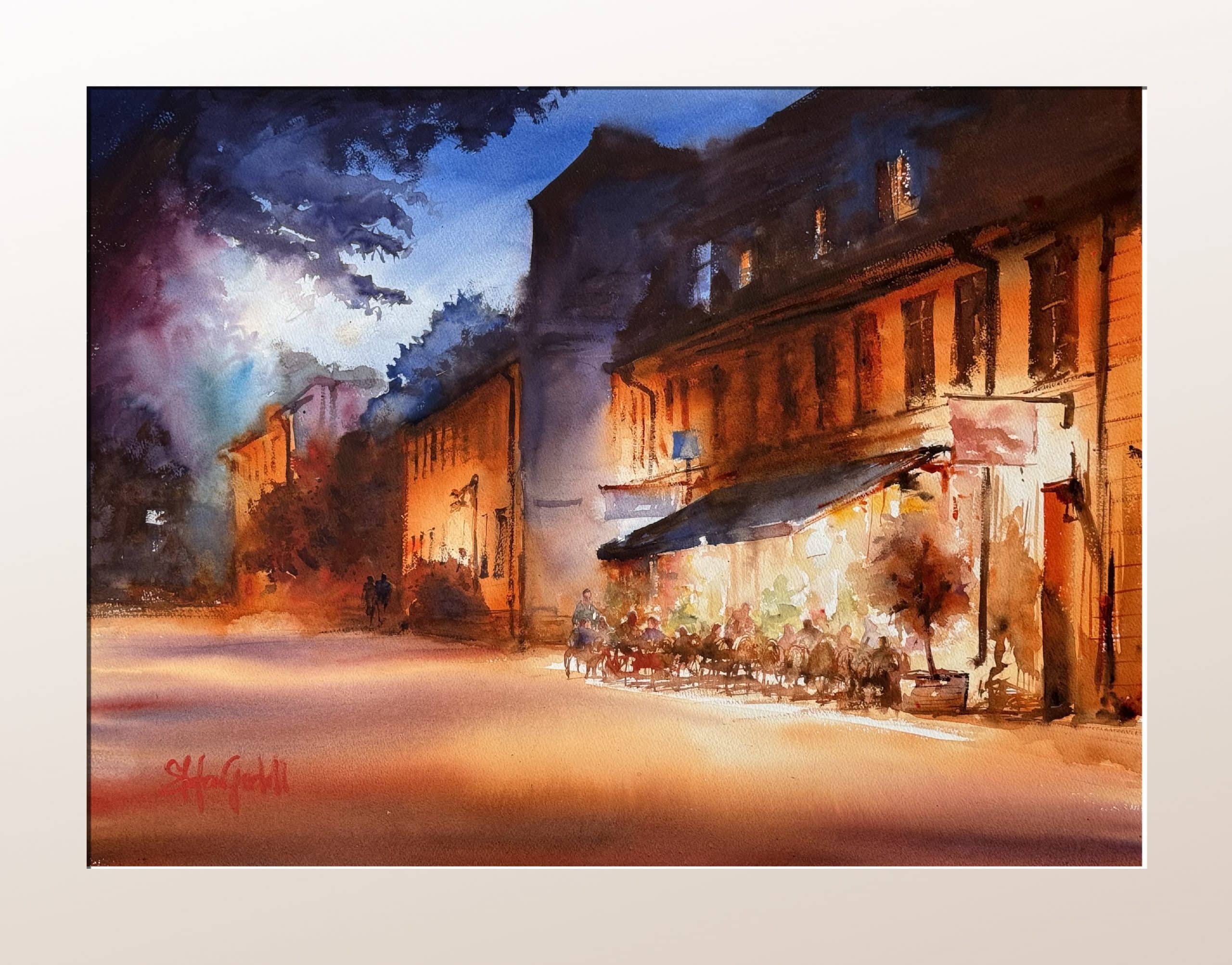
COLORS AND BRUSHES
Hello watercolor friends,One question I often get before a workshop is what colors and brushes I use. Of course, it is personal which ones you prefer, but it can be good to know if you are going to participate in a workshop and want to try to do exercises fully….
Joseph Zbukvic, day 5
Today we painted Girona. Joseph chose a bit up the river with the Eiffel red bridge and a church in the background. He worked for a long time with the many sunlit roofs. Here it is important not to make it monotonous, to vary all the time, both colors, strength…
Joseph Zbukvic, day 4
Today we went by bus to Calella de Palafrugell. We went down to the beach. Joseph warned us about painting in the sun. It looks good when you paint, but when you see the picture at home, it will be way too dark. He unfolded his board, put a piece…
Joseph Zbukvic, day 3
Today we painted Girona, a very beautiful city with old buildings and narrow streets. Joseph took us to a narrow passage with a long ancient staircase leading up to a large green church gate. A very difficult subject. He drew the gate quickly and easily, straight on, seemingly without much…

